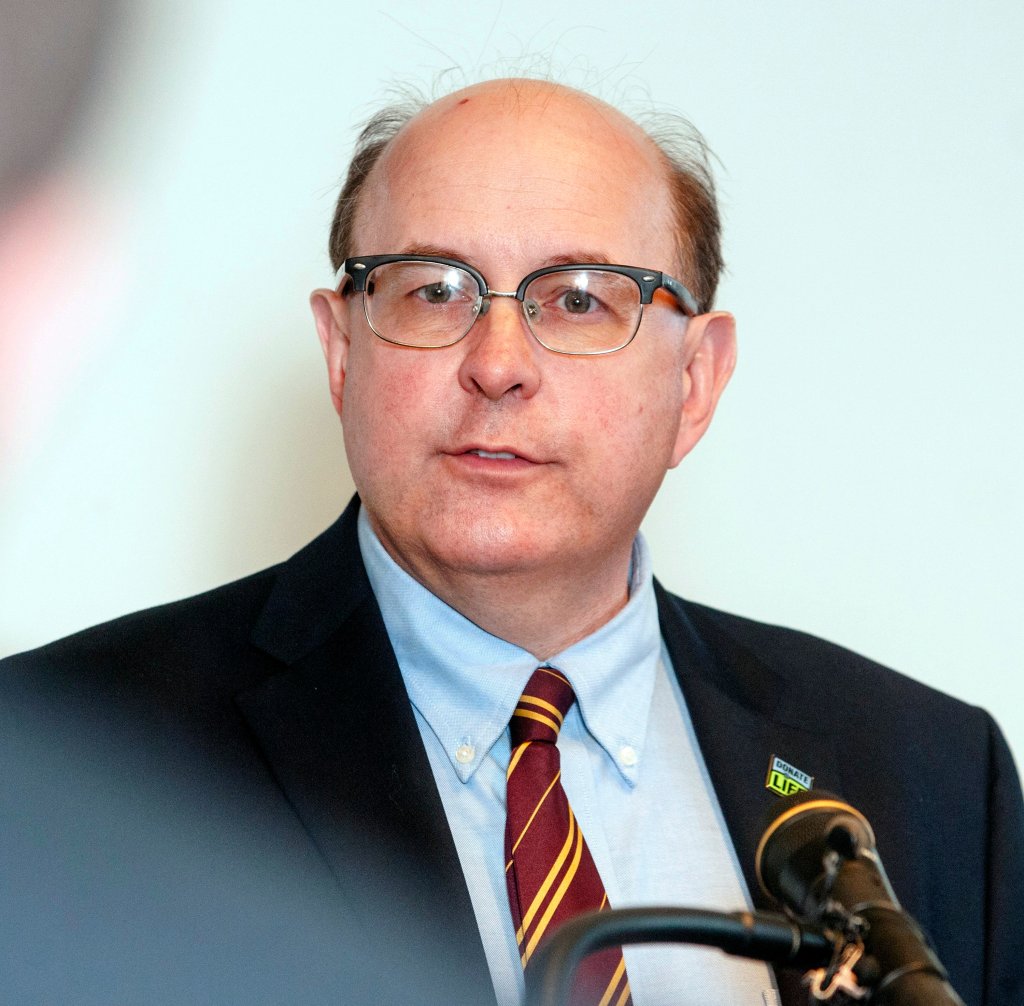
U.S. Rep. Jared Golden’s surprise decision to not seek reelection in 2026 is shaking up what was expected to be one of the most competitive House races in the country next year.
Some political scientists say Golden’s 2nd District seat now leans Republican while others say it’s still early to say, especially with speculation swirling about who else might get in the race.
And 2026 is expected to be a good year for Democrats, as off-years often favor the party that doesn’t control the presidency. They already saw a taste of in the elections this week, when Democrats won the high-profile races.
Golden, a Lewiston Democrat in his fourth term representing Maine’s more rural and conservative congressional district, announced Wednesday that he won’t seek a fifth term − reversing an earlier announcement in May that he would run again.

The move is likely to give a boost to Paul LePage, a former two-term Republican governor, who is running in a district that has now voted three times to elect President Donald Trump.
“This was a negative development for (Democrats),” said Kyle Kondik, managing editor of Sabato’s Crystal Ball, a nonpartisan newsletter and website offering political analysis at the University of Virginia Center for Politics. “It doesn’t mean the seat is gone, but I do think Republicans are probably favored there now.”
Sabato’s Crystal Ball on Wednesday moved the 2nd District race from a “toss up” to “leans Republican” in its 2026 House ratings. Inside Elections, another nonpartisan newsletter covering Congressional campaigns, also changed its rating of the race from “tilt Democrat” to “likely Republican.”
Republicans currently hold a slim majority in the House with 219 members compared to Democrats’ 213 members with three seats vacant. Prior to Wednesday, Republicans had been targeting the 2nd District as a potential pick-up opportunity, while Democrats were looking to maintain a seat that Golden narrowly won last year.
Golden, a centrist Democrat who said prior to the 2024 election that he was “OK” with Trump winning the presidency, won with just 50.4% of the vote after a ranked choice runoff in which Republican Austin Theriault, a first-term state lawmaker, received 49.7%.
Golden explained his decision in an op-ed in the Bangor Daily News, citing the rise of political polarization and violence. A spokesperson declined a request for an interview Thursday and said Golden “is not scheduling any interviews in the coming days.”
Had he stayed in the race, Golden would have faced his first primary challenge since getting elected in 2018. Matthew Dunlap, the state auditor and former secretary of state, announced a run last month and said he hoped to tap into some Democrats’ frustrations with Golden’s history of voting with Republicans.
Only one other House Democrat voted with the party less than Golden in votes where the majorities of each party were on opposite sides of an issue last year, according to Roll Call.
Republicans cheered Golden’s announcement, while Democrats pointed to the success in other national races in Tuesday’s elections as a good launching point for 2026, regardless of who their nominee is in the 2nd District.
“I think next year is going to be a pretty good year for Democrats,” said W. Joseph Campbell, a former journalist and professor emeritus of communication at American University in Washington, D.C. “The elections we had this week all turned out pretty well for Democrats … in a good sign of enthusiasm and willingness to turn out and register opposition to Donald Trump.”
Polling from the University of New Hampshire Survey Center last month found LePage to be leading Golden 49% to 45%. The poll did not ask voters about a LePage-Dunlap matchup.
In the 24 hours since Golden’s announcement, new questions have arisen about whether additional Democratic candidates will get in next year’s 2nd District race.

“I think nationally people are looking at this negatively for the Democrats and positively for the Republicans, but I’m not sure that necessarily fits with the facts on the ground,” said Jim Melcher, a professor of political science at the University of Maine at Farmington. “We don’t know if there are any other candidates who may now seek to jump in the race.”
In a written statement Thursday, former Maine Senate President Troy Jackson, a logger from Allagash — in the far north tip of Maine — who is running in a crowded governor’s race, said he has been getting lots of outreach from people asking if he plans to switch races.
Jackson did not say if it’s something he’s thinking about.
“I’m really flattered by everyone reaching out and I get why,” he said. “I’ve won multiple times in a district that voted for Trump by talking directly to rural working-class voters from across the political spectrum about how to make Maine more affordable for them.”
Jackson also attacked LePage as a “disgraced grifter from Florida who cares more about tax cuts for wealthy donors than fighting for hard-working Mainers.”

The campaign for Graham Platner, a political newcomer in a competitive U.S. Senate primary that includes Gov. Janet Mills, said Thursday that Platner “is laser focused on flipping this Senate seat blue,” in response to a question about whether he might switch races.
It may be a little while before other candidates get in the race, since Golden’s announcement was unexpected and others are probably not set up to launch campaigns right away, Melcher said.
Candidates are not able to take out paperwork to qualify for the ballot until January, and primaries are scheduled for June.
“There’s still plenty of time to jump in,” Melcher said.


We invite you to add your comments. We encourage a thoughtful exchange of ideas and information on this website. By joining the conversation, you are agreeing to our commenting policy and terms of use. More information is found on our FAQs. You can modify your screen name here.
Comments are managed by our staff during regular business hours Monday through Friday as well as limited hours on Saturday and Sunday. Comments held for moderation outside of those hours may take longer to approve.
Join the Conversation
Please sign into your CentralMaine.com account to participate in conversations below. If you do not have an account, you can register or subscribe. Questions? Please see our FAQs.